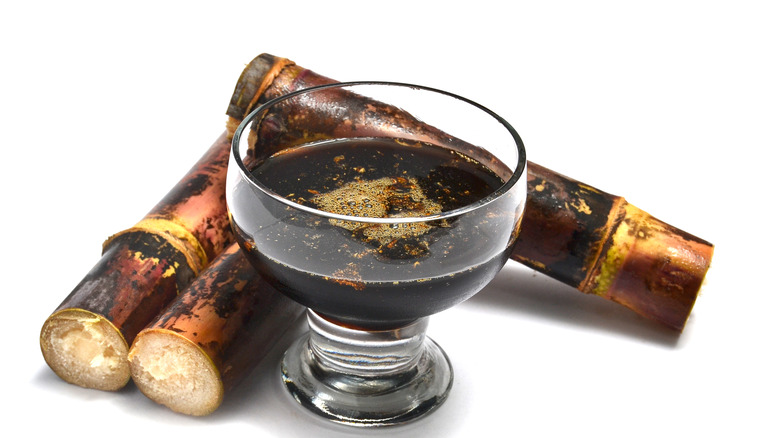Up to 15% of the world population suffer from constipation. It occurs when bowel movements become less frequent. It mostly occurs because of inadequate intake of fiber or changes in diet routine.(1,2)
There are several causes of constipation that aren’t linked underlying health conditions. Examples include dehydration, physical inactivity, or side effects from medication.(3)
Freeing your bowels is a vital function to keep the body healthy. Routinely, an individual will have to pass 3 or more bowel movements per week.(4)
Some individuals pass stool 2 to 3 times a day. Well, in this article I will point out some home remedies for constipation.
There are several home remedies for people who undergo mild cases of constipation. However, chronic constipation may cause life-disrupting symptoms that require serious treatment procedures and combination of herbs.
Some home remedies for infrequent bowel movements
Constipation may be a temporary problem; long-term constipation is a sign of a serious underlying health condition. It’s usually a treatable problem.
Frequent changes in diet, drinking water, exercising regularly, and taking supplements are among the easiest ways to relieve symptoms of constipation at home.
Also, identifying the contributing factors to constipation can help you decide which remedies are best.
Below is a combination of some home remedies for constipation;
1. Water
Drinking enough water is one of the simplest home remedies for constipation relief. When the body becomes dehydrated, It’s starts pulling water from the colon. Therefore, constipation is aresult of a dehydrated colon.
Drinking 6 to 8 glasses of water a day can keep stool soft, making bowel movements more frequent and comfortable. When you’re properly hydrated, your body doesn’t need to take excess water from your colon, so your bowels can excrete waste naturally, with no misgivings.
Drinking warm water is also an effective way to relieve and prevent constipation. Some studies confirm taking a glass of warm water in the morning can help break down foods and keep your bowel movements regular.
2. Lemon juice
Lemon juice can aid in the removal of toxins from the body. You can add lemon juice to water or tea as a natural digestive aid to help stimulate bowel movements.
Freshly squeezed lemon juice is best. Aside from plenty of regular water — about eight 8-ounce servings each day — try sipping on lemon water too. The citrus may help stimulate your colon.
You can drink a warm cup of lemon water when you wake up, and continue to sip on water during the day. One way to remember to keep sipping you can also, carrying a large bottle wherever you go.
3. Exercise
Regular exercise can help enhance bowel movements. Both vigorous and passive activity has a positive effect on the bowels.
Running can cause the intestines and colon to jiggle, causing the stool to move. Dancing, engaging in sports activities, walking 10 to 15 minutes once or twice a day can help keep you regular.
According to research, walking is one of the easiest and most convenient ways to exercise and can trigger bowel production.
Constipation makes exercise difficult, especially if you are cramping or bloating. A more relaxing approach to natural bowel relief can be through practicing Yoga or stretch.
Twisting the torso can also squeeze the intestines so that the stool loosens in the colon. Supine twists and seated twists are two yoga positions that incorporate twisting the torso.
Many other poses, such as standing forward bend, and downward-facing dog, are also vital for stimulating bowel movement.
4. Stimulate bowel movements through abdominal massage
A 2019 research found that abdominal massage is significant way of easing constipation symptoms. Starting low on your abdomen and starting in your pelvic bones is the best way.
Lightly rub the right shoulder then on the back side. Move to left to massage to the hipbone and back toward the belly button. Do a clockwise stroke for 1 min, and repeat for 10 min.
You can also press the abdomen in a clockwise motion while lying on your back for approximately 10 minutes. You can do this massage at least twice a day.
The clockwise motion helps stimulate bowel movement toward the rectum. Drinking hot tea or water before the massage can further enhance the gastrointestinal system.
5. Dietary Fiber
Also known as roughage, Fiber promotes easy passage of stools in the bowel. Health Professionals recommend having a daily intake of 25 grams of fiber. Fiber is dietary component in a wide range of fruits and vegetables.
Eating enough fiber can contribute to a healthy digestive system and weight loss. Fiber can be soluble and insoluble. While insoluble fibre can contribute to the pace at which it moves through the colon, soluble fibre gives stool density,
Some of the rich sources of dietary fiber include:
- Brussels sprouts
- Apples
- Bananas
- Carrots
- Figs
- Bran cereal
Adding powder fiber supplements to water or juice but not carbonated beverages like soda stimulates bowel movement. Allow your body time to adjust to the fiber supplement. Drinking extra water can help reduce side effects, such as bloating.
6. Castor oil
Castor oil, derived from the castor bean, is a natural laxative that you can use orally to enhance bowel movement. Not only does castor oil lubricate the intestines, but this ancient oil also causes the intestines to contract.
Take castor oil as directed, one to two teaspoons on an empty stomach. Allow up to 8 hours before a bowel movement occurs.
7. Coffee enemas
Caffeine is an enema of colon release. It’s a remedy said to relieve constipation and reduce toxicity in the body.
Although it can help move the bowels, caffeinated coffee can also be dehydrating. Be sure to drink plenty of water when drinking caffeinated beverages, as not to worsen the condition.
8. Senna

Senna is an herb that uses the leaf, flower, and fruit of the cassia plant. It’s an ancient medicine used as a natural laxative.
Senna is a stimulant laxative that helps the digestive tract contract. Often drunk as tea, senna can be very effective and work within several hours after consumption.
Approved by the FDA, Senna can be as a tablet or powder supplement. It can also help with irritable bowel syndrome (IBS) and hemorrhoids.
9. Herbal Teas
Warm liquids can soothe to the gastrointestinal and digestive systems. Certain teas such as ginger and peppermint help upset stomachs. Below is a list of teas that could prove helpful if you are experiencing constipation:
Black or green tea
Black/green tea works similarly to coffee in stimulating the bowels.
Ginger
This warming spice generates heat and speeds up digestion.
Chamomile
Chamomile relaxes the digestive muscles, which can prevent the bowels from moving on their own during stress and tension.
Peppermint
This menthol can soothe an upset stomach and move stool through the intestines.
Dandelion root
Dandelion root reduces mild constipation by stimulating the liver.
Licorice root
Anti-inflammatory properties in licorice root can ease the digestive system after a meal.
10. Aloe Vera

You often use externally aloe Vera to soothe cuts and burns, you can also take aloe vera orally to soothe the digestive tract.
Drink aloe vera juice plain or add it to smoothies or other beverages to help ease constipation and IBS.
According to research, drinking aloe vera juice helps increase the water content in the intestines, which further aids stool movement by making it smoother and easier to pass.
12. Coconut water
Drinking coconut water can hydrate and detoxifying. It stimulates the digestive system and increases kidney function increases. Coconut water contains magnesium, which helps the muscles in the intestinal wall move fecal matter out of the body.
13. Vitamins
Vitamins can help you free your bowels and keep your digestive system balanced. Check out these list of recommended vitamins for gastrointestinal health;
Vitamin C
Daily intake of vitamin C supplements can help relieve constipation. Doctors do not recommend that people take large doses of vitamin C to help them pass stool.
Folic acid
Folic acid works to both prevent and treat severe constipation. Its stool softening abilities allow more liquid to remain in your stool.
Vitamin B-12
Low intake of vitamin B-12 can cause constipation.
Vitamin B-1
Eating foods high in these vitamins may help you increase your bowel movements. Another strategy to make sure you’re getting the right amount of vitamins is to take vitamin supplements.
14. Fennel
Fennel is a mild, natural laxative. Moreover, Fennel seeds increase gastric enzymes in the digestive system, helping stool move through the colon effectively. Before Bedtime, you can add roasted fennel to warm water and you drink the mixture.
15. Prunes, figs, and raisins
A 2014 study found that prunes are capable of increasing stool frequency and consistency. Furthermore, in 2019 medical reviewed study suggests that prunes may increase stool weight and frequency in individuals with low fiber intake.
16. Honey
Chock full of enzymes that aid in digestive health, honey is a common household item that is also a mild laxative. When taken plain or added to tea, water, or warm milk, honey can ease constipation.
17. Molasses

Molasses, especially blackstrap molasses, can help soften stool. Blackstrap molasses contain vital vitamins and minerals like magnesium that can provide constipation relief.
Consuming one tablespoon in the evening can gently encourage a bowel movement in the morning.
19. Omega-3 oil
Omega-3 oils are in hemp seed oil, and flaxseed oil. It lubricates the intestinal walls for a laxative effect.
Consuming fish such as avocados, flaxseed, and hemp products can naturally introduce these oils to your digestive system.
If you don’t like or can’t eat these foods regularly, Omega-3 supplements are also available.
20. Baking soda
Baking soda is another household staple that can clean out the colon. Add one teaspoon of baking soda to approximately 1/4th cup of warm water. The baking soda reacts with stomach acids to stimulate a bowel movement.
21. Enemas
A 2002 scientific study posed that antegrade enemas are ideal for children with severe constipation and doesn’t respond to medical treatments.
The national health institute reported in 2004 of community nurses who were using phosphate enemas to treat constipation.
Enemas can be useful if constipation needs to be more immediately relieved. These can be a saline solution that is inserted into the rectum. The liquid from the enema flushes poop from the bowels.
22. Suppositories
Suppositories are used to relieve occasional constipation. Laxative suppositories are another treatment for constipation which includes insertion into the rectum.
A glycerine tablet suppository can relieve soft to moderate constipation. Suppositories aid bowel movements within 15 to 60 minutes.
Research suggests taking medications via the rectum allows a relatively constant environment for a drug to be delivered.
How to insert a rectal suppository
a. Get prepared
- Try to pass the stool to empty the colon.
- Wash hands thoroughly with soap and warm water.
- Carefully remove the suppository from its wrapper.
- If it is necessary to cut the suppository, use a single-edge razor blade.
- Use a disposable glove, if desired or olive oil for lubrication.
b. Get ready to insert the suppository
- Dip the tip of the suppository inside water.
- Remove clothing from the lower half of the body.
- Find the correct position. Either stand up or lie down on one side.
c. Insert the suppository
- Relax the buttocks muscles and open the cheeks.
- Gently insert the suppository into the anus, use the narrow end first.
- Push it in about 1 inch for adults, or 1/2 an inch for infants.
In children above age 5, push the suppository half (1/2) to one (1) inch, depending on their size.
d. Relax and clean up
- Lie or sit still for 10 minutes after inserting the suppository.
- Dispose of all materials, including the suppository wrapper, and Wash your hands thoroughly with running water.
But, before you come to these kinds of treatments why cant you try home remedies for constipation which are equally effective?
Should you go for over-the-counter Laxatives to treat constipation?
Laxatives are over-the-counter stool softeners that can help you empty your bowels. There are a few different types:
Stool Softener: makes stools soft and easy to pass.
Osmotics: increase the amount of intestinal fluid to make you go to the bathroom.
Stimulant laxatives: creates intestinal contractions to help you have regular bowel movements.
Lubricants: help hard stool pass more easily through lubrication of the intestines.
Effects of over-the-counter laxatives
Daily use of laxatives can also have other side effects on your health. These include:
- Bloating and gas in the stomach
- Belly crumps
- Abnormal farting
- Headaches with a sickly feeling
- Dehydration
- Body electrolyte disturbances and mineral deficiencies
Instead of the risk of these side effects you can choose the home remedies listed above to treat constipation.
Best food-based constipation remedies
It is important for you to practice healthy eating at home. It’s all about fruit vegetables and whole food with less processed foods.
Almost all foods that help with constipation have fiber content. Despite the diversity of fibers in various plants, eat whole grains with high soluble fiber works best in relieving constipation.
Probiotics
Probiotics contain beneficial bacteria that may help improve stool frequency. A 2014 systematic review found that probiotics may help improve whole gut transit time, stool frequency and consistency.
A 2021 medically reviewed study found that probiotics can help with functional constipation. It improves intestinal microbiota while increasing intestinal frequency.
Magnesium can help relieve constipation
A 2019 peer-reviewed study found that Magnesium oxide is effective for treating constipation. The mineral magnesium is also key other functions of the gastrointestinal tract, regulating things like muscle and nerve functions.
The mineral osmotically attracts water through the intestinal cavity and can help prevent constipation.
Increases in the amount of liquid stimulate gut motility, which contracts intestinal muscles pushing the waste into the GIT. This helps soften and increase the size of the stool, enabling easier passage through stools.
Heating pad for faster relief
A 2011 systematic study found that applying heat on the abdomen may improve gastrointestinal movements. The movement will enhance ease of passing stool.
Word from Gilead on treating constipation
Every individual has experienced a constipation at least once in their lifetime. While constipation can go away on its own, untreated constipation can lead to an impacted bowel. It is helpful to know what can ease the discomfort of this common ailment.
The above natural remedies will help your GI tract and help you have regular bowel movement.
If the above home remedies for constipation do not render healthy bowel movements, individuals should seek professional medical advice. Consult your doctor if you have not had a bowel movement within a two- to three-week period.
Ask your doctor about recommended home remedies for constipation and the prevention of constipation in the future.


Pingback: Home remedies for excessive gas | GILEAD THERAPY
Pingback: 15 Ways to Boost Your Immune System | GILEAD THERAPY
Pingback: 13 Effective Home Remedies for Nausea | GILEAD THERAPY
Pingback: 25 Causes of constipation that hinder loose bowels | GILEAD THERAPY
Pingback: 9 What are symptoms of constipation in adults | GILEAD THERAPY
Pingback: 13 Home remedies for indigestion-a review | GILEAD THERAPY
Pingback: 13 HOME REMEDIES FOR Hemorrhoids | GILEAD THERAPY
Pingback: Bedwetting: Causes, Threats, and Remedies | GILEAD THERAPY